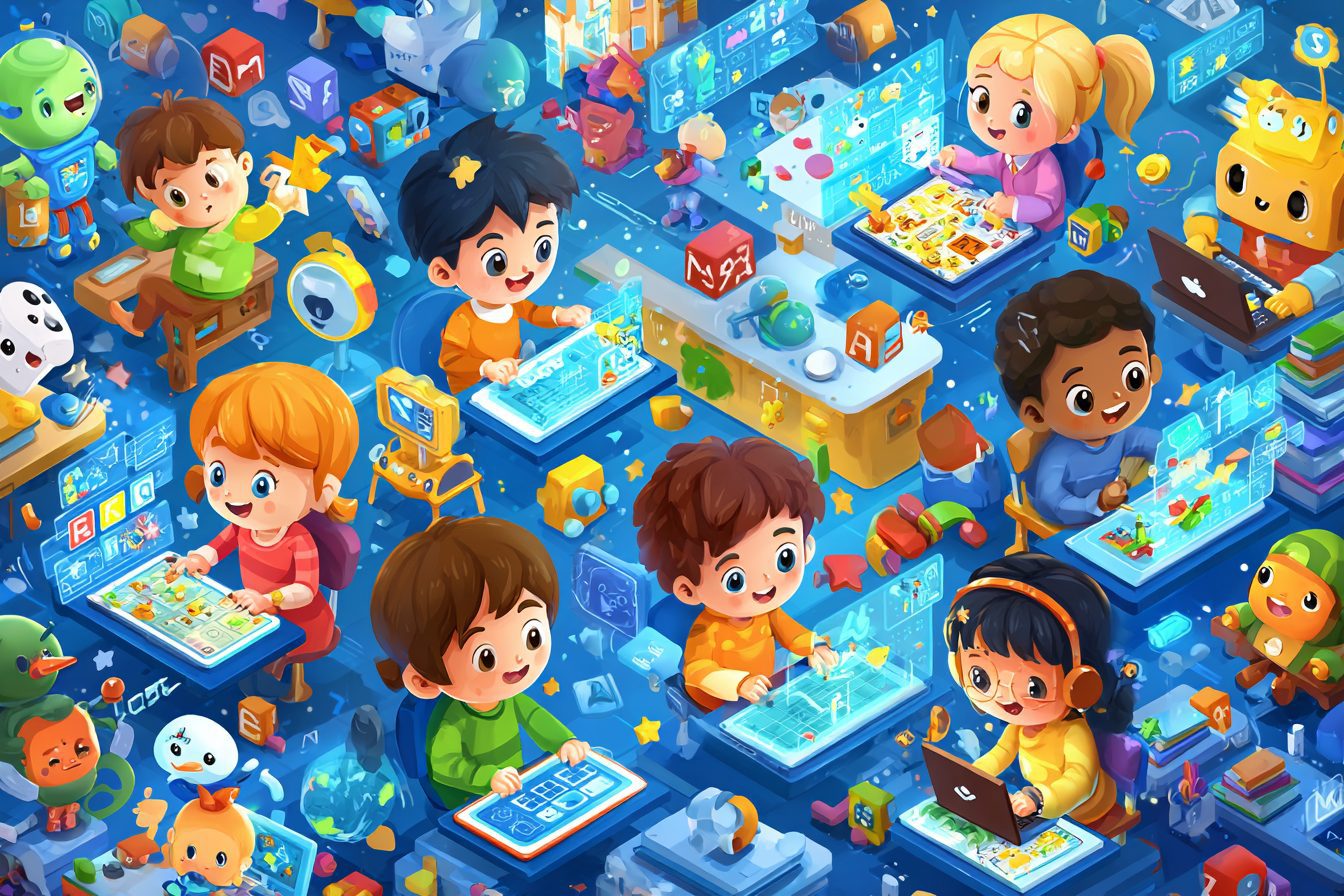🎮 Introduction: Let’s Talk About Learning That Feels Like Play
Ever seen a kid glued to a screen and thought, “Wish that was a math app instead of a video game?” Well, educational gaming makes that possible—and it’s more fun than you’d think! Today’s platforms aren’t about boring drills. They’re interactive, colorful, and designed to teach everything from ABCs to Python. Let’s dive into the best educational gaming platforms that kids will genuinely love.
🎯 What Makes a Great Educational Gaming Platform?
Not all learning games are created equal. So what sets the best apart?
👶 Age-Appropriate Content
Kids learn best when the material speaks to their level. A platform for toddlers won’t work for teens—and vice versa.
📈 Skill-Based Progression
The best platforms grow with the learner. As kids improve, the challenges evolve, keeping them engaged and motivated.
🔐 Parental Controls & Progress Tracking
Parents love being in the loop. Whether it’s screen time limits, tracking scores, or checking which skills are being mastered—transparency is key.
🎉 The Fun Factor
Let’s be honest—if it’s not fun, it won’t work. Top-tier platforms use storytelling, characters, and rewards to hook kids in.
🏆 Top 10 Educational Gaming Platforms That Kids Will Love
1. ABCmouse – Early Learning, Big Smiles
Ideal for ages 2–8, ABCmouse covers reading, math, science, and art. With over 10,000 activities and a reward-based system, it’s like preschool and a treasure hunt in one.
2. Prodigy – A Math RPG Kids Can’t Put Down
Imagine battling monsters using math skills. That’s Prodigy. Aligned with curriculum standards, it’s a hit with both teachers and parents.
3. Kahoot! – Quiz Show Meets Classroom
Great for group learning, Kahoot! uses real-time quiz battles to make learning competitive and fun. Plus, kids can create their own quizzes!
4. BrainPOP – Animation + Education = Magic
From STEM to social studies, BrainPOP uses animations, quizzes, and games to simplify complex topics. Great for visual learners!
5. Tynker – Code Your Own World
Got a future coder? Tynker teaches programming with block-based and text coding games. Think Minecraft meets MIT.
6. Adventure Academy – Where Learning Is an MMO
For kids aged 8–13, this immersive world offers reading, math, and science in a multiplayer universe. Bonus: customizable avatars and in-game missions!
7. Roblox Education – Creativity Meets Collaboration
More than just a game, Roblox lets kids create their own games and learn coding, game design, and even entrepreneurship through digital creation.
8. Osmo – Touch, Play, Learn
Osmo combines physical toys with digital play. Whether it’s spelling with real blocks or solving puzzles, it brings screen time to life—literally.
9. National Geographic Kids – Discover the Wild Side
Packed with games, quizzes, and puzzles, this one’s for the curious explorer. Learn about animals, science, space, and more.
10. PBS Kids Games – Learn with Your Favorite Characters
From Elmo to Arthur, PBS Kids makes learning personal and fun. With hundreds of games across subjects, it’s a go-to for younger learners.
💡 Blockquote Break
“Education is not the filling of a pail, but the lighting of a fire.” — William Butler Yeats
Educational gaming is the matchstick.
🚀 Benefits of Educational Gaming for Kids
Critical Thinking Comes to Life
Games require strategy, prediction, and quick decisions. They’re brain gyms in disguise.
Encourages Independent Learning
When kids play these games, they take control of their learning journey—and that’s empowering.
Fun Fuels Focus
Let’s face it—no one ever said worksheets were thrilling. But when learning feels like play? Kids stay locked in.
Tech Savvy from the Start
Today’s kids are tomorrow’s tech leaders. These platforms help build that foundation early.
👨👩👧 How Parents Can Support Their Kids With Educational Games
- Set Time Limits: Balance screen time with outdoor play and reading.
- Play Together: Make it a bonding experience. Discuss what they learned.
- Track Progress: Most platforms offer dashboards or reports. Use them!
📚 Educational Gaming and the Future of Learning
Gamified learning isn’t just a trend—it’s the future. Schools are already adopting game-based tools to enhance traditional teaching. As EdTech continues to evolve, expect VR, AR, and AI to join the mix, making learning more personalized and engaging than ever.
🧭 Tips for Choosing the Right Platform
- Know Your Child’s Interests: A dinosaur-loving child may enjoy science-based games more than math puzzles.
- Use Free Trials: Test the platform before subscribing.
- Check for Certifications: Look for endorsements from educators or educational institutions.
🎓 Conclusion
Educational gaming is more than just a buzzword—it’s a game-changer. Whether you’ve got a preschooler learning shapes or a tween diving into coding, there’s a platform out there that fits. The key is to make learning irresistible—and these platforms do just that.
So why wait? Turn that screen time into brain time and watch your child thrive.
🙋♀️ FAQs
1. Are educational games really effective?
Yes! Studies show that game-based learning boosts engagement, memory retention, and critical thinking skills.
2. What’s the best game for preschoolers?
ABCmouse and PBS Kids Games are great picks for younger children.
3. Can these games be played offline?
Some can, like Osmo and a few BrainPOP activities. But most work best with internet access.
4. Are there any free platforms?
Kahoot! and Prodigy offer free versions with lots of value.
5. How can I make sure my child is safe online?
Choose platforms with robust parental controls, read reviews, and co-play when possible.
